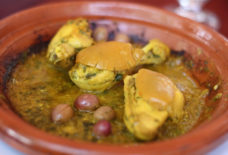SOURCE: AL-FANAR MEDIA
BY: AYAR JAHCHAN
When it comes to humor, Arabs don’t shy away from joking about themselves. But Arab women comedians still face barriers to a film or stage career.
This year’s Edinburgh Festival Fringe again welcomed women of Arab heritage hoping to make waves on the stand-up comedy scene. The program in August included one-woman shows by the British-Lebanese performers Esther Manito and Isabelle Farah.
Manito’s one-hour comedy sketch “#NotAllMen” recalls her teenage years in Essex, a county northeast of London which is known for being glamorous in a brash way and where a stereotypical masculinity pervades the youth scene.
What is it that makes Arabs so funny to British audiences? Manito, with a Lebanese father and a mother from northeastern England, says it’s simply down to differences in culture.
“Arabs are so loud and British people are reserved. The two cultures are so opposite,” she said. “The inability to keep your opinions to yourself versus the need to vocalise everything is a brilliant comedy juxtaposition, which both sides find funny.”
Two years ago, Manito performed her show “Crusade,” a funny take on bigotry in the West and the misogyny in some Middle Eastern cultures, at the Fringe. The festival has also previously hosted the award-winning comedy actor Janine Harouni.









